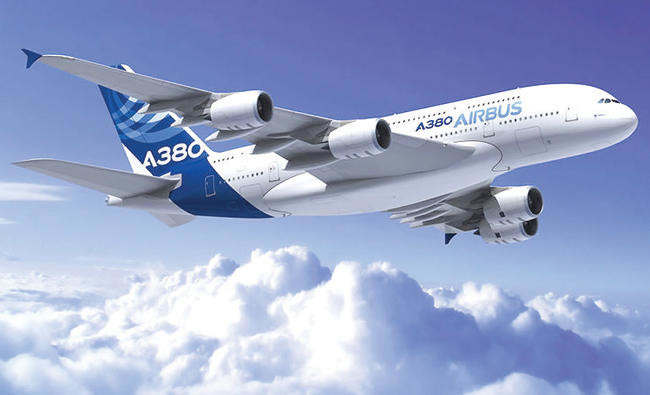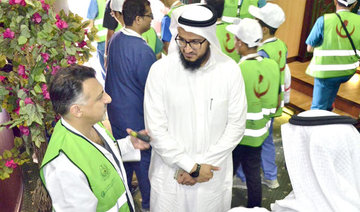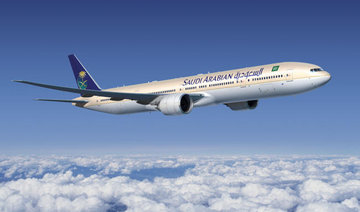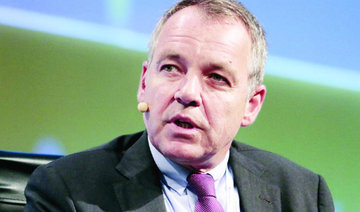LONDON: The annual Hajj pilgrimage is big business for those working in aviation, with vast numbers of Muslims from around the world flying in and out of Saudi Arabia.
For tour operators, airlines and brokers, Hajj and Umrah traffic represents a recurring stream of annual revenue.
That steady source of income for many companies could be challenged due to a new competitor for Hajj traffic looming on the horizon.
Malaysia Airlines is looking to launch a Hajj service using its surplus large A380 aircraft. The widely reported plans would involve reconfiguring the current 494-seat layout across three classes on some of its existing super jumbo jets to create a slightly cozier all-economy 700-seat aircraft.
If such plans were to be put in place and prove successful, it could to be a far more cost-effective way to move hundreds of pilgrims at one time in and out of the Kingdom than using smaller planes. “It is a little bit of a game changer for the Hajj traffic,” said Tobias Rueckerl, owner and CEO of Hajjaircraft and its parent company Adavco.
In 2016, 1.3 million Muslims from outside Saudi Arabia traveled to the Kingdom to complete Hajj, with 94 percent of those arriving in the country by plane, according to government statistics.
“The Hajj requires the efficient movement of large volumes of people. The A380 is perfect for this with its high seat capacity, and hence low-unit seat costs. For an airline like Malaysia Airlines with a large Muslim home market, it can find work for most of the year with Umrah pilgrimages driving travel outside of the annual Hajj period itself,” said aviation consultant John Strickland.
Often pilgrims will travel on chartered flights arranged by tour operators or government agencies flying in and out of Jeddah, taking anything from small 5-seater planes to the 200- or 300-seater aircraft typically used by commercial airlines.
Commercial airlines also lease extra planes to run Hajj-specific services. For example, Saudi Arabian Airlines (Saudia) leases Boeing 747 and A330 aircraft to run their Hajj services, said Abdulrahman Altayeb, vice president for corporate communications at Saudi Arabian Airlines.
Biman Bangladesh Airlines needs to lease wide-body aircraft capable of carrying more than 450 passengers in order to transport around 50,000 pilgrims to and from Saudi Arabia each year, said a spokesperson for the company.
Arranging Hajj travel can be a pricey business, for a variety of reasons. “Flights are becoming more and more expensive,” said Rueckerl. Sometimes government agencies can end up paying far more than they need to for aircraft, partly because they leave their Hajj plans to the last minute and are in urgent need of a plane.
Hajjaircraft typically deals with a regular client base — made up of airlines, tour operators and government agencies that come back each year. Nigeria is home to some of the company’s oldest most-established clients, Rueckerl said. “But in other countries it remains difficult — every year it is the same story. If you want state-of-the-art aircraft you have to secure them straight after the current Hajj,” he said, explaining how some countries’ tour operators still do not sufficiently plan ahead.
There is also a level of “fake” demand in the market, Rueckerl said, that has pushed up prices. What this means is that there are many different small brokers and operators all enquiring with the small number of airlines offering Hajj-specific flights, and all chasing the limited number of aircraft available.
The cost of travel could potentially be reduced if Malaysia Airlines deploys the A380 for Hajj. The airline is due to apply for its license this quarter to set up its pilgrimage service as a separate business from the main airline, Bloomberg reported in July, citing the airline’s CEO Peter Bellew.
The service could be operational in a year.
Malaysia Airlines did not respond to a request for comment.
The plans could help the airline generate more income from its surplus A380s.
“You don’t have a secondhand A380 market, and all of the operators are thinking what to do with the aircraft,” said Rueckerl, particularly now that some of the planes are verging on 10 years old.
Traveling by the reconfigured A380 could also be a more cost-efficient option for pilgrims. “The per seat price could be 20-25 percent lower than with a B747. That could make the whole Hajj operation very interesting with this aircraft,” he said. He forecasts that if the Asian airline is successful with its new venture, then other carriers may follow suit.
Already, Emirates has said that it will be operating an A380 service to Madinah to meet the increased demand during Hajj.
The Dubai-based airline also said in its August 17 announcement that it would be operating 45 additional flights to Jeddah and 12 additional flights to Madinah using various aircraft during the pilgrimage.
There are, however, some drawbacks with using larger planes such as the A380.
Smaller countries, particularly in Africa, often lack the infrastructure and airports to handle these super-jumbo jets, Rueckerl said.
“If you have a country like Niger, you have roughly 4,000-5,000 people traveling, but they are not traveling at once, but over a couple of weeks, then an A380 with 700 seats would be too large for them.”
While the A380 may make the Hajj travel market a little more competitive, there will remain pockets of opportunities for the smaller players.
A380 Hajj service could change the way pilgrims travel
A380 Hajj service could change the way pilgrims travel

KSrelief aid reaches thousands in crisis zones

- Since 2015, KSrelief has implemented 4,066 projects in 109 countries, spending over $8.28 billion
RIYADH: Saudi aid agency KSrelief continues to provide vital assistance to some of the world’s most vulnerable communities.
In Yemen, the organization distributed 1,850 shopping vouchers in Marib governorate, enabling beneficiaries to purchase winter clothing. The aid reached hundreds of displaced individuals living in camps.
In Lebanon, the KSrelief-funded ambulance service of the Subul Al-Salam Social Association in Miniyeh district, northern Lebanon, carried out 34 emergency missions last week.
In Chad, the Saudi aid agency distributed 1,600 cartons of dates and women’s hygiene kits in Chari-Baguirmi province, benefiting 800 families from the most vulnerable groups, including people with disabilities, refugees, and widows.
KSrelief also distributed 803 food baskets in Dandadji village, Maradi, Niger, benefiting 5,621 individuals from 803 families.
In Sudan, the agency distributed 2,513 food baskets to vulnerable and displaced families in Kosti locality, White Nile state, reaching 18,678 individuals.
Since 2015, KSrelief has implemented 4,066 projects in 109 countries, spending over $8.28 billion on food security, health, education, water and sanitation, shelter and early recovery.
















